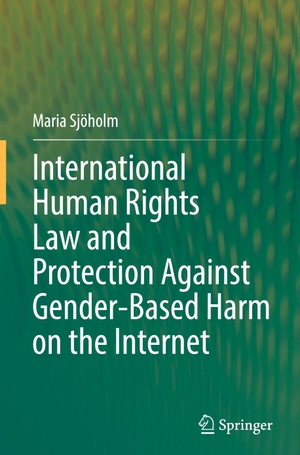Für statistische Zwecke und um bestmögliche Funktionalität zu bieten, speichert diese Website Cookies auf Ihrem Gerät. Das Speichern von Cookies kann in den Browser-Einstellungen deaktiviert werden. Wenn Sie die Website weiter nutzen, stimmen Sie der Verwendung von Cookies zu.
Cookie akzeptieren
Maria Sjöholm
International Human Rights Law and Protection Against Gender-Based Harm on the Internet
- Springer International Publishing
- 2022
- Gebunden
- 376 Seiten
- ISBN 9783031158650
This book analyses gender-based offences on the Internet from the perspective of international human rights law, interwoven with rights theories and feminist legal theories. It investigates whether international human rights law is applicable in regulating harmful online conduct and speech, with a focus on sexual violence, various forms of harassment, sexist hate speech and harmful pornography. This involves assessing whether gender-based online offences are considered violations of international human rights law and ¿ if they are recognised as such explicitly or by way of interpretation ¿ the extent of state obligations. The book reviews a range of international law sources, such as selected international human rights
Mehr
Weniger
zzgl. Versand
in Kürze